#pharmacovigilance certificate training course
Text
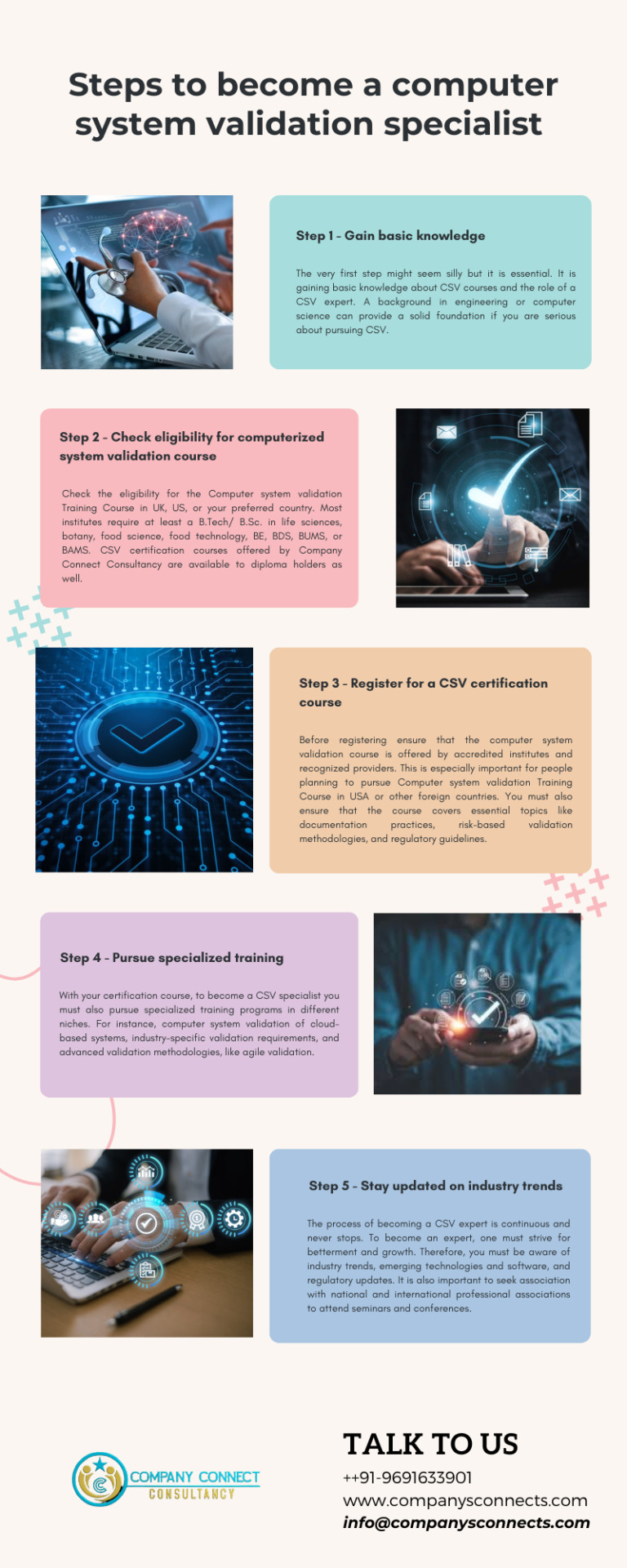
Read about Steps to become a computer system validation specialist in the given infographic and get more details at: www.companysconnects.com
0 notes
Text
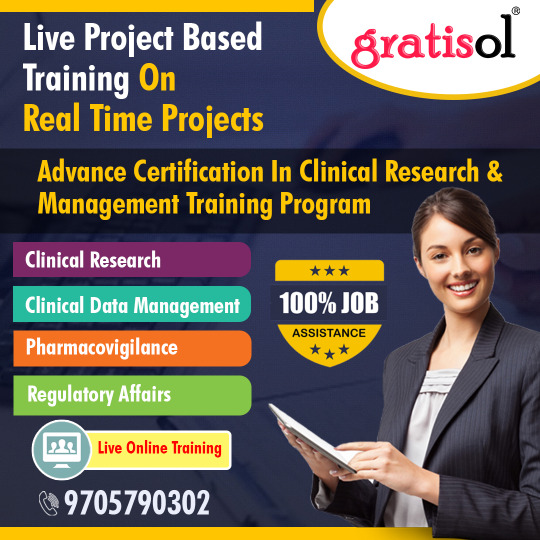
#Clinical Research Associate Training#Advanced Clinical Research Associate Certification#Clinical Research Trainng - Best Clinical Research Training Institute - Clinical Research Advance certification#Gratisol Labs is a leading Clinical Research Institute Offering Clinical Research Course#Pharmacovigilance Course#Clinical data Management Course#SAS Course#Medical Writing Course and Regulatory Affairs Course.. We offer Clinical Research Training program. This Advance Certification Clinical Res#Clinical Data Management training#SAS Training. Medical Writing training and Regulatory Affairs course. We offer clinical research Certification Program also offers Clinical#have B.Pharmacy#M.Pharmacy#Life Sciences#Microbiology#Biotechnology#Chemistry. BPT#BDS and BHMS Also eligible for Clinical Research training program. For B.Pharmacy and M.Pharmacy the pharmacovigilance course is best suita#Biotechnology and Medical Device industries to both experienced professionals and entry level candidates.#The Clincal Data Manamgent Training offered fall into the broad categories of Recruitment Solutions#Temporary Staffing#Outsourcing#Consulting#Application Training in Clinical Data Management course (Oracle Clinical#Oracle Inform/Central Designer)#Pharmacovigilance (Oracle Argus Safety Database#Oracle AERS)#CDISC SDTM & SAS to aspirants of Clinical Research Industry. We successfully help some of the top Pharmaceutical#Biotechnology and Medical Device organizations from around the world to recruit high caliber experienced & trained professionals.#The Pharmaceutical & Clinical Research Industry#worldwide is facing a huge shortage of trained manpower resources. With a View to fill this gap between the demand & supply of trained manp
0 notes
Text
Pharmacovigilance Training & Placements
Pharmacovigilance is the science and activities related to the detection, assessment, understanding, and prevention of adverse effects or any other drug-related problems. It plays a crucial role in ensuring the safety and efficacy of medications and is an important aspect of the pharmaceutical industry. Enhance your career prospects through comprehensive Pharmacovigilance Training.
If you're interested in pharmacovigilance training and placements, here are some steps you can follow:
1. Education: Obtain a relevant educational background in pharmacy, medicine, life sciences, or a related field. A bachelor's or master's degree in pharmacy, pharmacology, or toxicology is often preferred. Enroll in a Pharmacovigilance course online to learn about the science and practices of drug safety.
2. Training programs: Look for specialized training programs or courses that focus on pharmacovigilance. These programs can provide you with a comprehensive understanding of pharmacovigilance principles, regulations, and practices. Great Online Training offers a comprehensive online pharmacovigilance training program designed for professionals in the pharmaceutical, biotechnology, and medical device industries. The program covers essential topics such as adverse event reporting, signal detection, risk management, and regulatory compliance. Students can access the course materials at their own pace and receive a certificate upon successful completion. Join a Pharmacovigilance course with placement to kickstart your career in the pharmaceutical industry.
3. Internships or entry-level positions: Seek internships or entry-level positions in pharmaceutical companies, contract research organizations (CROs), regulatory authorities, or pharmacovigilance service providers. These opportunities can provide hands-on experience and exposure to the field. Earn a Pharmacovigilance Certificate Course to demonstrate your expertise in drug safety and regulatory compliance.
4. Certification: Consider obtaining relevant certifications to enhance your credentials. For individuals interested in pursuing a career in pharmacovigilance, there are reputable online training programs available, such as those offered by Great Online Training, that provide comprehensive courses and resources to help learners develop the necessary skills and knowledge to excel in this field. Take advantage of the Pharmacovigilance free online courses with certificate to enhance your skills and knowledge in drug safety.
5. Networking: Build a professional network by attending conferences, workshops, and industry events related to pharmacovigilance. Networking can help you connect with professionals in the field and explore potential job opportunities. Acquire in-depth knowledge and skills in drug safety with a Diploma in Pharmacovigilance.
6. Stay updated: Pharmacovigilance regulations and practices evolve over time. Stay updated with the latest guidelines, regulatory requirements, and emerging trends in pharmacovigilance through continuous learning and professional development. Obtain a Pharmacovigilance Certification to validate your proficiency in ensuring drug safety and patient welfare.
7. Job search: Utilize online job portals, professional networking platforms, and pharmaceutical industry websites to search for pharmacovigilance job openings. Additionally, consider reaching out to recruitment agencies specializing in the pharmaceutical industry.
When it comes to placements, the demand for skilled pharmacovigilance professionals is generally high, considering the importance of drug safety and regulatory compliance.
Pharmaceutical companies, CROs, regulatory agencies, and pharmacovigilance service providers often have dedicated pharmacovigilance departments or teams. These organizations can provide opportunities for placements in roles such as drug safety associate, pharmacovigilance specialist, medical safety officer, or pharmacovigilance manager.
Keep in mind that the availability of pharmacovigilance training programs and job opportunities may vary based on your location and the pharmaceutical industry landscape in your region. It's essential to research and explore the specific opportunities and requirements in your desired area. Choose a reputable Pharmacovigilance Institute to receive comprehensive training and education in drug safety.
#pharmacovigilance training#pharmacovigilance free online courses with certificate#pharmacovigilance course online#pharmacovigilance course with placement#pharmacovigilance certificate course#diploma in pharmacovigilance#pharmacovigilance certification#pharmacovigilance institute
0 notes
Text
DATA VISUALIZATION IN CLINICAL TRIALS

"Data plays a key function in organizing, monitoring, and analyzing findings for a clinical study, similar to the foundation of a new house. Data provides new insights, helps evaluate hazards, and helps choose the best course of action for a study.
Introduction
In clinical trials, adverse events are often reported by simply counting the number of people who experienced each event. Reporting only frequency leaves out other data aspects that are crucial for stakeholders, such as severity, seriousness, rate (recurrence), timing, and groups of connected Adverse events. Data visualization is the process of displaying data in such a way that it can be easily understood. It helps to identify patterns and trends and make decisions based on this information. A good data visualization tool will allow you to quickly summarize your data and make it easy for others to understand what it means.
In the last ten years, there has been an increase of 183% in data per clinical trial because of breakthroughs in science and technology. The amount and variety of such data have grown well beyond what a straightforward spreadsheet can handle. The volume and variety of data generated by clinical trials will increase as they adopt decentralized methods. The main obstacles for sponsors of all sizes are importing and evaluating data from wearables, imaging systems, apps, and central labs. The importance of curating and delivering the data to stakeholders is growing along with the difficulty and time commitment. To complete these responsibilities, a platform that enables research teams to access all data in one location is now essential.
What is Data visualization?
Data visualization is the graphical representation of information and data using visual elements like charts, graphs, maps, and other visuals. It uses a variety of techniques, such as graphs and charts, pie charts and bar graphs, line graphs (to compare two sets), maps, timelines (to show repeated observations), histograms (to find outliers), box plots, etc.,
Comparison of traditional frequency tables and data visualization
Data visualization is more effective than frequency tables because it allows you to compare data more intuitively. A traditional frequency table shows how many times each option was selected but does not allow you to see any other information about the response (e.g., mean, or median). This can be time-consuming if multiple options are being compared or if many different metrics are being displayed on one page with no space between them
Power of Data Visualization
Traditional methods just don't allow for efficient use and administration of that data when the volume of data increases and decentralized trials become more prevalent. You may easily integrate, organize, and analyze clinical data using visualization tools to boost operational effectiveness and drive clinical trial success. In addition to the obvious benefit of being able to identify outliers and trends, data visualization also helps with identifying clusters, correlations, and relationships. These are all ways that you can use your data to inform decisions about a trial.
Benefits of data visualization
More informed decisions
Faster analysis
Improved organizational efficiency
Visualizations can better support investigators to assimilate large volumes of data and enable improved informal between-arm comparisons compared to tables
Increased competitive advantage
Improved customer experience
Visualization can show data quality issues, support robust temporal searches, or even discover cohorts of patients meeting selection criteria for clinical studies that depend on huge warehouses of patient data.
The availability of more internet information and personal sensors has begun to raise patient awareness of and ownership over their health. This is a significant departure from the paternalistic approach to healthcare in which patients trust their doctors with their health during annual checkups or in the event of an injury or illness.
Provide insights into the relationships between variables and help you identify potential flaws in your study design.
Conclusion
Data visualization is a powerful way to improve the quality of Clinical trial data. The use of tables, dot plots, and volcano plots can encourage differing interpretations. This can be achieved by providing interactive tools for data exploration and analysis, as well as visual displays that are easy to interpret and understand. Care in the construction of visual displays needs to be taken as there can be potential to overemphasize treatment effects in some circumstances.
https://www.clinosol.com/
#Clinical Research Training institute#certificate course in clinical research#clinical data management course#medical writing course#pharmacovigilance course
0 notes
Text
Best Medical Coding Training Institute
Rainbow Clinical Research & Management (rcrm) online training with Placement assistance.
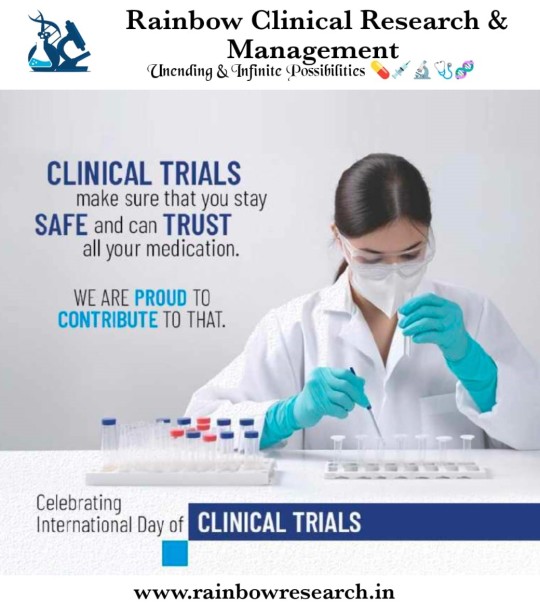
Best pharmacovigilance course training
Mock Interviews
Resume preparation.
Faculty: Best experienced industry faculty.
Note: after completion of training we will provide training material, Course completion certificate and we will refer interviews.
More information,
Call us at +91-+91 7820914972, +91 7020438583
#rainbowclinicalresearchandmanagement#medicalcoding#medicalcodingtraining#medicalcodingcourse#rcrm#pharmacovigilance#clinicalresearch#nagpur#medical#healthcare#clinicaldatamanagement#medicalcodingnagpur#medicalcodinginnagpur#regulatoryaffairs#medicalbilling
0 notes
Text
Mastering Pharmacovigilance: Your Path to Certification, Courses, and Training
In today’s rapidly evolving pharmaceutical landscape, ensuring the safety and efficacy of medicinal products is paramount. This critical responsibility falls under the realm of pharmacovigilance, a discipline dedicated to the detection, assessment, understanding, and prevention of adverse effects or any other drug-related problems. As the demand for skilled pharmacovigilance professionals continues to rise, obtaining a pharmacovigilance certification, enrolling in a comprehensive course, or undergoing specialized training can significantly enhance one's career prospects and contribute to the safeguarding of public health.
A Pharmacovigilance certification serves as a testament to an individual's proficiency in pharmacovigilance principles, regulations, and practices. It validates their ability to effectively manage pharmacovigilance processes, including adverse event reporting, signal detection, risk management, and regulatory compliance.
Medipharmsolutions, a leading provider of pharmaceutical education and training, offers a comprehensive pharmacovigilance certification program designed to equip professionals with the knowledge and skills necessary to excel in this dynamic field.
The pharmacovigilance course offered by Medipharmsolutions is meticulously crafted to cover a wide range of topics, including pharmacovigilance methodologies, pharmacovigilance databases, regulatory requirements, pharmacovigilance in clinical trials, and pharmacovigilance auditing. Participants undergo rigorous training delivered by industry experts with extensive experience in pharmacovigilance practice and regulation. Through interactive lectures, case studies, workshops, and practical exercises, students gain a deep understanding of pharmacovigilance principles and develop the competencies needed to address real-world challenges.
Medipharmsolutions' pharmacovigilance training programs are tailored to meet the diverse needs of individuals and organizations involved in the pharmaceutical industry. Whether you are a newcomer seeking to enter the field of pharmacovigilance or a seasoned professional looking to enhance your skills, there is a training program suitable for you. From introductory courses covering the fundamentals of pharmacovigilance to advanced workshops focusing on specialized topics such as risk management plans and pharmacovigilance inspections, Medipharmsolutions provides comprehensive training solutions that cater to all levels of expertise.
Obtaining a pharmacovigilance certification or completing a pharmacovigilance course not only enhances your knowledge and skills but also opens up a world of career opportunities. Pharmacovigilance professionals are in high demand across the pharmaceutical industry, including pharmaceutical companies, contract research organizations (CROs), regulatory agencies, and consulting firms. With the increasing emphasis on drug safety and regulatory compliance, certified pharmacovigilance professionals are well-positioned to pursue rewarding careers in roles such as pharmacovigilance officer, drug safety associate, pharmacovigilance manager, and pharmacovigilance consultant.
In conclusion, investing in pharmacovigilance certification, courses, or training is a strategic move for anyone looking to establish a successful career in the pharmaceutical industry. With Medipharmsolutions' comprehensive educational programs, you can acquire the knowledge, skills, and credentials needed to thrive in the dynamic field of pharmacovigilance. Whether you are just starting your journey or seeking to advance your career, Medipharmsolutions is your trusted partner in mastering pharmacovigilance. Take the first step towards a brighter future today.
0 notes
Text
Exploring the Vital Role of Pharmacovigilance: A Guide to Choosing the Right Pharmacovigilance Course
Pharmacovigilance plays a crucial role in ensuring the safety and efficacy of pharmaceutical products. As the pharmaceutical industry continues to evolve and expand, the demand for skilled professionals in pharmacovigilance is on the rise. If you're considering a career in pharmacovigilance or looking to enhance your skills in this field, enrolling in a pharmacovigilance course could be the key to unlocking new opportunities.
In this comprehensive guide, we'll explore the importance of pharmacovigilance, the essential components of a pharmacovigilance course, and tips for choosing the right program to suit your needs and career goals.
1. Understanding Pharmacovigilance:
- Define pharmacovigilance and its significance in healthcare.
- Explore the objectives and principles of pharmacovigilance.
- Discuss the role of regulatory agencies and pharmacovigilance systems in monitoring drug safety.
2. Importance of Pharmacovigilance Training:
- Highlight the growing demand for pharmacovigilance professionals.
- Discuss the career opportunities available in pharmacovigilance.
- Emphasize the importance of specialized training in pharmacovigilance for career advancement.
3. Key Components of Pharmacovigilance Courses:
- Curriculum Overview:
- Explore the core topics covered in pharmacovigilance courses, such as adverse event reporting, signal detection, risk management, and regulatory requirements.
- Practical Training:
- Discuss the importance of hands-on experience and case studies in pharmacovigilance training.
- Highlight the value of internships and industry collaborations for gaining real-world exposure.
- Certification Options:
- Explore different certification programs and accreditation bodies in pharmacovigilance.
4. Tips for Choosing the Right Pharmacovigilance Course:
- Assess Your Goals:
- Determine your career objectives and areas of interest within pharmacovigilance.
- Research Course Offerings:
- Explore different pharmacovigilance courses available online and offline.
- Consider factors such as course duration, curriculum, faculty expertise, and accreditation.
- Read Reviews and Testimonials:
- Seek feedback from past students and professionals who have completed the course.
- Evaluate Cost and Accessibility:
- Compare tuition fees, study materials, and accessibility of the course, considering your budget and schedule.
5. Career Opportunities in Pharmacovigilance:
- Explore diverse career paths available in pharmacovigilance, including drug safety associate, pharmacovigilance manager, medical writer, regulatory affairs specialist, and more.
- Discuss the potential for career growth and advancement in the field of pharmacovigilance.
6. Conclusion:
- Summarize the importance of pharmacovigilance training in ensuring drug safety and regulatory compliance.
- Encourage readers to explore pharmacovigilance courses as a stepping stone towards a rewarding career in healthcare.
By investing in a pharmacovigilance course, you'll gain the knowledge, skills, and credentials needed to excel in this dynamic and essential field. Whether you're a recent graduate or an experienced professional looking to transition into pharmacovigilance, embarking on a pharmacovigilance course could be the first step towards a fulfilling and impactful career in healthcare.
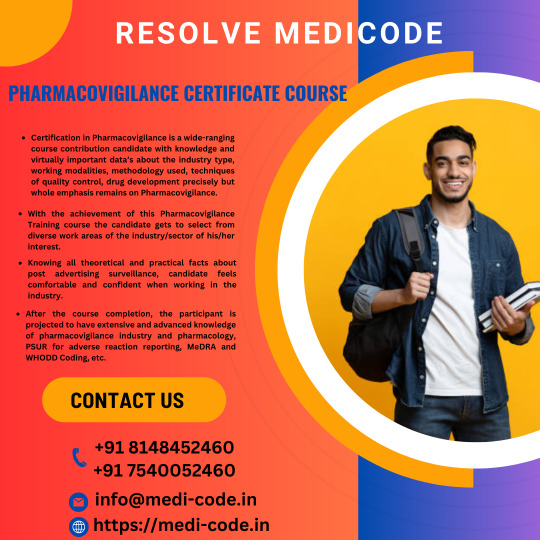
#Pharmacovigilance#PharmacovigilanceCourse#PharmacovigilanceTraining#PharmacovigilanceClasses#PharmacovigilanceJobs#TraininginPharmacovigilance#GoodPharmacovigilancePractice
0 notes
Text
CCRPS Clinical Research Training - Provides Clinical Research Certification
Get certified clinical research training with the industry leader. Start your education with self-paced, accredited, online clinical research courses from CCRPS. ICH GCP, clinical research associate, clinical research coordinator, research assistant, pharmacovigilance drug safety officer, clinical research project manager, principal investigator, or medical monitor.
Visit https://ccrps.org/ for more details.
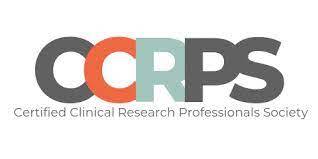
1 note
·
View note
Text
How to Complete the Pharmacovigilance Course: A Complete Guide
Introduction:
In the pharmaceutical sector, taking a pharmacovigilance course provides access to a crucial area of medication safety and regulatory compliance. In addition to providing information on the importance of pharmacovigilance, course structure, important modules, career possibilities, and industry demands, the goal of this guide is to serve as a path for aspiring students.
Modules and Course Structure:
Gain an understanding of pharmacovigilance by exploring its underlying concepts and highlighting its function in tracking and evaluating adverse drug reactions (ADRs) after a product has been put on the market. Examine its significance for maintaining public health and adhering to regulations.
Selecting the Appropriate Path:
Learn about the standard format and modules of pharmacovigilance courses, which include topics like risk management plans, drug safety surveillance, regulations, signal detection, and pharmacovigilance systems. Recognize how these courses give students the knowledge and abilities they need.
Choosing the Correct Course:
When choosing a pharmacovigilance course, take into account factors like accreditation, length of the course, mode of delivery (online or in-person), relevance of the curriculum, faculty experience, and industry relationships.
Practical Training and Case Studies:
Learn the importance of these learning tools in pharmacovigilance courses, as they give students real-world examples to apply their theoretical knowledge. Examine how these elements improve your ability to think critically and make decisions.
Certification and Industry Recognition:
Recognize the importance of earning certification in pharmacovigilance from respectable organizations. Find out more about accredited certificates and how they affect credibility in the industry and job advancement.
Career Opportunities and Growth:
Learn about the various career pathways that are open to pharmacovigilance specialists. These include positions as regulatory affairs specialist, pharmacovigilance manager, pharmacovigilance scientist, and drug safety associate. Learn about the demands of the sector and your professional growth prospects.
Conclusion:
Starting a pharmacovigilance course is a crucial step in developing a fulfilling career in regulatory affairs and drug safety. Through a grasp of the subtleties of certification alternatives, course structures, and industry demands, learners may arm themselves with the knowledge and abilities required to succeed in an ever-evolving area.
For more info:-
pharmacovigilance course
pharmacovigilance training
pharmacovigilance courses online
pharmacovigilance certification
0 notes
Text
Pharmacovigilance Course Online Free
Explore Pharmacovigilance for free with our comprehensive online course. Learn adverse event reporting, drug safety, and more. Enroll now!
Read More: https://www.companysconnects.com/certified-clinical-research-pharmacovigilance
#pharmacovigilance courses#drug regulatory affairs#mes training#drug regulatory affairs certification
0 notes
Text

#Clinical Research Associate Training#Advanced Clinical Research Associate Certification#Clinical Research Trainng - Best Clinical Research Training Institute - Clinical Research Advance certification#Gratisol Labs is a leading Clinical Research Institute Offering Clinical Research Course#Pharmacovigilance Course#Clinical data Management Course#SAS Course#Medical Writing Course and Regulatory Affairs Course.. We offer Clinical Research Training program. This Advance Certification Clinical Res#Clinical Data Management training#SAS Training. Medical Writing training and Regulatory Affairs course. We offer clinical research Certification Program also offers Clinical#have B.Pharmacy#M.Pharmacy#Life Sciences#Microbiology#Biotechnology#Chemistry. BPT#BDS and BHMS Also eligible for Clinical Research training program. For B.Pharmacy and M.Pharmacy the pharmacovigilance course is best suita#Biotechnology and Medical Device industries to both experienced professionals and entry level candidates.#The Clincal Data Manamgent Training offered fall into the broad categories of Recruitment Solutions#Temporary Staffing#Outsourcing#Consulting#Application Training in Clinical Data Management course (Oracle Clinical#Oracle Inform/Central Designer)#Pharmacovigilance (Oracle Argus Safety Database#Oracle AERS)#CDISC SDTM & SAS to aspirants of Clinical Research Industry. We successfully help some of the top Pharmaceutical#Biotechnology and Medical Device organizations from around the world to recruit high caliber experienced & trained professionals.#The Pharmaceutical & Clinical Research Industry#worldwide is facing a huge shortage of trained manpower resources. With a View to fill this gap between the demand & supply of trained manp
1 note
·
View note
Text
Why Great Online Training is the Best Option for Pharmacovigilance Training
Introduction
Pharmacovigilance is an essential aspect of drug safety, aiming to protect public health by monitoring and evaluating the safety and efficacy of medicinal products. In today's fast-paced world, where technology is constantly evolving, online training is becoming increasingly popular for various fields, including pharmacovigilance. In this article, we will explore the reasons why Great Online Training is the best choice for pharmacovigilance training.
Flexibility and Convenience
Online training offers unparalleled flexibility and convenience, allowing students to access course materials and complete assignments at their own pace. This is particularly beneficial for busy professionals looking to upskill or change careers, as they can work around their existing schedules and responsibilities.
2. Cost-Effectiveness
Online courses often have lower tuition fees compared to traditional in-person courses, as they require fewer resources and overhead costs. This makes online training a more affordable option, without sacrificing the quality of education.
3. Access to Expert Instructors and Global Perspectives
Great online training platforms provide access to experienced instructors from around the world, offering diverse perspectives and expertise in pharmacovigilance. Students benefit from this global network and can learn from the best in the field, regardless of their geographical location.
4. Interactive Learning Environment
Modern online learning platforms incorporate a variety of multimedia resources, such as videos, quizzes, and discussion forums, to create an engaging and interactive learning experience. This fosters better comprehension and retention of the course material, ensuring that students are well-equipped to excel in the field of pharmacovigilance.
5. Networking Opportunities
Online training platforms often have dedicated forums and discussion boards, where students can connect with their peers and instructors. This facilitates networking, collaboration, and the sharing of ideas and experiences, which can prove invaluable in professional development.
6. Continuous Updates and Access to Resources
Pharmacovigilance is an ever-evolving field, and online training platforms can quickly adapt and update their course materials to reflect the latest advancements and regulatory changes. Students also typically have access to course materials and resources even after the course is completed, ensuring they stay informed and up-to-date in their field.
Conclusion
In conclusion, Great Online Training is the best option for Pharmacovigilance Training due to its flexibility, cost-effectiveness, access to expert instructors, interactive learning environment, networking opportunities, and continuous updates. By choosing a reputable online training platform, students can acquire the skills and knowledge necessary to excel in the pharmacovigilance field while enjoying the benefits of a modern, convenient learning experience.
#pharmacovigilance training#pharmacovigilance free online courses with certificate#pharmacovigilance course online#pharmacovigilance course with placement#pharmacovigilance certificate course#diploma in pharmacovigilance#pharmacovigilance certification#pharmacovigilance institute
0 notes
Text
Clinical research courses in Hyderabad- Pharmacovigilance course in Hyderabad.
0 notes
Text
Unveiling the Future of Learning: The Benefits of a Pharmacovigilance Course Online
Introduction:
In an era where digital transformation is reshaping education and professional development, the accessibility and convenience of online courses have become pivotal. The field of pharmacovigilance is no exception, with professionals seeking to enhance their skills and stay abreast of evolving industry practices turning to online courses. This article delves into the advantages and key considerations of opting for a pharmacovigilance course online, exploring how this mode of learning is shaping the future of education in the pharmaceutical and healthcare sectors.
Accessible Anytime, Anywhere: One of the primary advantages of an online pharmacovigilance course is the flexibility it offers. Professionals, often juggling demanding schedules, can access course materials and lectures at their convenience. This flexibility eliminates geographical constraints and time barriers, allowing participants to learn at their own pace from anywhere in the world.
Self-Paced Learning: Online pharmacovigilance courses often adopt a self-paced learning model, enabling participants to progress through the material at a speed that suits their individual learning styles. This accommodates diverse learning preferences and ensures that individuals can delve deeper into complex topics or move more quickly through familiar concepts.
Cost-Effective Learning: Traditional classroom-based courses can incur substantial costs, including travel, accommodation, and venue expenses. In contrast, online courses eliminate these overheads, making education more cost-effective. Participants can often access quality pharmacovigilance training without the financial burden associated with attending in-person classes.
Global Expertise and Networking: Online pharmacovigilance courses frequently attract a diverse cohort of participants from various parts of the world. This diversity enriches the learning experience by bringing in different perspectives and insights. Additionally, the virtual nature of these courses facilitates networking opportunities, allowing professionals to connect with peers, industry experts, and instructors globally.
Industry-Relevant Content: Online pharmacovigilance courses are designed to align with current industry trends and regulations. The digital format allows for swift updates to course content, ensuring that participants receive the most recent and relevant information. This is particularly crucial in the dynamic field of pharmacovigilance, where regulatory requirements and best practices evolve.
Interactive Learning Tools: To enhance engagement and understanding, online pharmacovigilance courses often incorporate interactive learning tools. These may include quizzes, case studies, discussion forums, and virtual simulations. Such tools not only reinforce theoretical knowledge but also provide practical insights into the real-world application of pharmacovigilance principles.
Expert-Led Instruction: Quality online pharmacovigilance courses are typically led by industry experts and experienced instructors. Participants benefit from the expertise of professionals who have firsthand experience in pharmacovigilance practices, regulatory compliance, and risk management. This ensures that the learning is not only theoretical but also grounded in practical, industry-relevant knowledge.
Continuous Learning and Updates: The pharmaceutical industry is dynamic, with regulatory landscapes and pharmacovigilance practices continually evolving. Online courses often offer avenues for continuous learning and updates, allowing participants to stay informed about the latest developments in the field. This commitment to ongoing education is vital for professionals aiming to maintain relevance in their roles.
Considerations When Opting for an Online Pharmacovigilance Course:
Accreditation and Certification: Ensure that the online pharmacovigilance course is accredited by relevant industry bodies and provides a recognized certification upon completion. This adds credibility to the acquired knowledge and enhances its applicability in professional settings.
Technological Requirements: Before enrolling in an online course, verify that you have the necessary technological resources. This includes a reliable internet connection, compatible devices, and any software or platforms required for the course. Familiarity with online learning platforms is also beneficial.
Support and Interaction: Look for courses that offer adequate support and opportunities for interaction. This can include access to instructors for clarification of doubts, discussion forums for peer interaction, and support services to address technical issues.
Course Structure and Curriculum: Review the course structure and curriculum to ensure that it aligns with your learning objectives. A well-structured course should cover essential pharmacovigilance topics, offer a balanced blend of theory and practical applications, and provide comprehensive insights into the regulatory landscape.
Reviews and Testimonials: Explore reviews and testimonials from previous participants to gauge the effectiveness of the course. Insights from individuals who have completed the program can provide valuable perspectives on the quality of instruction, course content, and overall learning experience.
Conclusion:
The advent of online education has transformed the way professionals acquire knowledge and skills, and the field of pharmacovigilance is no exception. Opting for a pharmacovigilance course online offers a myriad of advantages, including flexibility, cost-effectiveness, and access to global expertise. As the pharmaceutical and healthcare industries continue to evolve, embracing online learning becomes instrumental in staying abreast of industry trends, regulations, and best practices. By leveraging the benefits of online education, professionals in pharmacovigilance pave the way for a future where learning is accessible, dynamic, and tailored to the demands of a rapidly changing industry.
0 notes
Text
Navigating the Regulatory Path: Online Regulatory Affairs Training in Hyderabad
In the ever-evolving pharmaceutical industry, staying updated with regulatory standards and requirements is essential for success. Hyderabad, often referred to as "India's Pharma Capital," is home to numerous companies and professionals working in the pharmaceutical sector. To cater to the growing demand for regulatory expertise, several institutions now offer online regulatory affairs training in Hyderabad. These training programs provide a flexible and accessible way for individuals to acquire the knowledge and skills necessary to navigate the complex world of pharmaceutical regulations.

The Rise of Regulatory Affairs Training Institutes in Hyderabad:
Hyderabad has long been a hub for the pharmaceutical industry in India, housing both national and international pharmaceutical giants. With such a dynamic and competitive industry, there's a need for professionals who understand and can effectively implement regulatory standards. Regulatory Affairs professionals play a crucial role in ensuring that pharmaceutical products meet the necessary legal and quality standards, making it a lucrative career choice.
Online Regulatory Affairs Training:
The emergence of online regulatory affairs training institutes in Hyderabad has revolutionized the way individuals acquire the knowledge and skills required for this profession. Online training offers several key advantages, including:
1. Flexibility: Online courses allow professionals to learn at their own pace and schedule, making it ideal for those who have full-time jobs or other commitments.
2. Access to Industry Experts: Many online regulatory affairs training institutes in Hyderabad collaborate with industry experts and regulatory authorities, providing insights and knowledge directly from professionals who understand the ever-changing landscape of pharmaceutical regulations.
3. Comprehensive Curriculum: These programs cover a wide range of topics, from drug development and clinical trials to regulatory documentation and post-approval compliance, ensuring that students are well-prepared for their roles.
4. Certification: Successful completion of these courses often results in recognized certifications, which can significantly enhance career prospects.
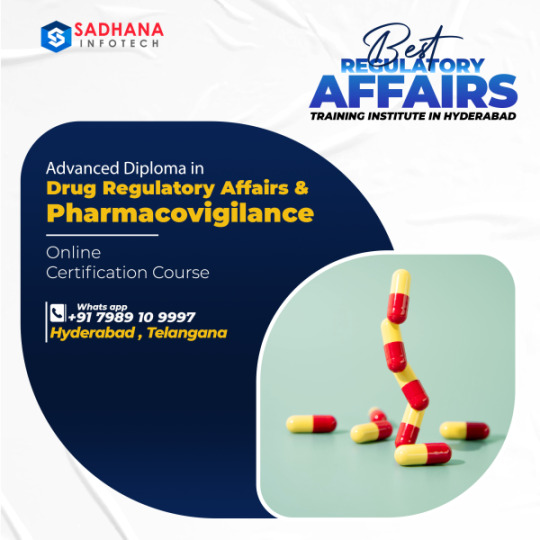
Pharma Regulatory Training Institute in Hyderabad:
One such institution that has gained prominence is the Pharma Regulatory Training Institute in Hyderabad. It offers a variety of online courses designed to equip students with the knowledge and skills needed to excel in regulatory affairs within the pharmaceutical industry. These courses cover topics such as regulatory submissions, quality compliance, and pharmacovigilance.
In conclusion, as the pharmaceutical industry continues to evolve, the demand for regulatory affairs professionals is stronger than ever. Online regulatory affairs training in Hyderabad is a convenient and effective way for individuals to gain the knowledge and skills required to thrive in this dynamic field. By staying updated with the latest regulations and industry standards, professionals can contribute to the production of safe and effective pharmaceutical products, ensuring the health and well-being of countless individuals around the world.
#online regulatory affairs training in Hyderabad#online regulatory affairs training institutes in Hyderabad#Pharma Regulatory Training Institute in Hyderabad
0 notes
Text
Why Should You Consider a Career in Medical Coding?
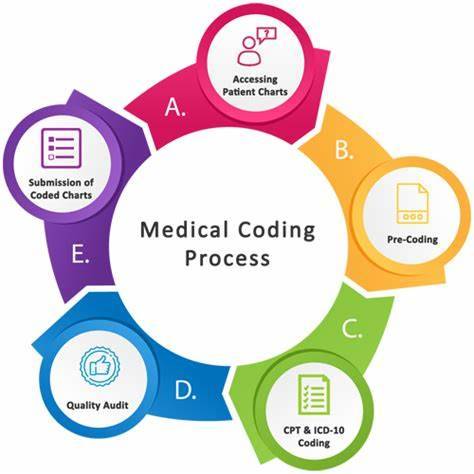
Introduction
Are you looking for a rewarding career in the healthcare industry that doesn't require years of medical school? If so, medical coding might be the perfect choice for you. In this blog, we'll explore the exciting world of medical coding, its importance in clinical research, and why you should seriously consider it as a career option. Let's dive in!
What is Medical Coding?
Medical coding is like the language of healthcare. It involves transforming medical information such as diagnoses, procedures, and treatments into universal codes. These codes are used for various purposes, including billing, insurance claims, and clinical research. Essentially, medical coders are responsible for ensuring that the healthcare system runs smoothly by accurately documenting patient records.
Why Choose a Career in Medical Coding?
1. In-Demand Career: The healthcare industry is constantly growing, and with it, the demand for skilled medical coders. Hospitals, clinics, insurance companies, and research institutions are always in need of qualified professionals to handle their coding needs.
2. Short Training Period: Unlike many other healthcare careers that require years of education, you can become a medical coder relatively quickly. Numerous institutes offer courses and training programs in medical coding that can be completed in a matter of months.
3. Diverse Opportunities: Medical coding isn't limited to just one type of job. You can find opportunities in various settings, including hospitals, private practices, pharmaceutical companies, and research organizations. If you want to explore related fields, you can also transition into areas like pharmacovigilance, drug regulatory affairs, or clinical data management.
4. Stability and Job Security: The healthcare industry is known for its stability, and medical coding is no exception. As long as there are healthcare services, there will be a need for medical coders. This translates to job security and peace of mind in your career.
5. Work-Life Balance: Many medical coding jobs offer excellent work-life balance. You'll typically work regular hours in a comfortable office setting, allowing you to maintain a healthy work-life balance.
6. Good Earning Potential: While salaries can vary based on location and experience, medical coders generally earn a competitive wage. With experience and additional certifications, you can increase your earning potential even further.
7. Contributing to Healthcare: By ensuring accurate coding, you help maintain the integrity of patient records, improve patient care, and support clinical research, pharmacovigilance, drug regulatory affairs, and clinical data management.
The Role of Medical Coding in Clinical Research
Now, let's delve into the connection between medical coding and clinical research. Clinical research plays a vital role in advancing healthcare treatments and therapies. It involves testing new drugs, medical devices, and treatment protocols to ensure their safety and effectiveness. Medical coding is an essential part of this process for several reasons:
1. Data Accuracy: Accurate coding ensures that the data collected during clinical trials is reliable. Researchers rely on this data to make informed decisions about the safety and efficacy of new treatments.
2. Regulatory Compliance: Regulatory agencies, such as the FDA, require precise documentation of clinical trial data. Medical coding helps maintain compliance with these regulations, which is critical for getting new drugs and treatments approved.
3. Patient Safety: Proper coding helps identify any adverse events or side effects experienced by patients during clinical trials. This information is crucial for patient safety and determining the risks and benefits of a new treatment.
4. Data Analysis: Medical coding simplifies the process of data analysis by categorizing information into standardized codes. This makes it easier for researchers to identify trends and draw conclusions from the data.
How to Start Your Career in Medical Coding?
1. Take a course: Look for reputable institutes or online courses that offer medical coding training. These courses cover topics like anatomy, medical terminology, and coding systems such as ICD-10 and CPT.
2. Get Certified: While certification isn’t always required, it can significantly boost your job prospects. Consider obtaining certifications like Certified Professional Coder (CPC) or Certified Coding Specialist (CCS) through recognized organizations.
3. Gain Experience: Entry-level positions may require some on-the-job experience. Look for internships or entry-level coding jobs to build your skills and resume.
4. Stay Updated: Medical coding guidelines and regulations can change, so it’s essential to stay current. Attend workshops, and seminars, and continue your education to remain competitive in the field.
5. Network: Join professional organizations such as the American Health Information Management Association (AHIMA) or the American Academy of Professional Coders (AAPC) to connect with other professionals in the industry.
Conclusion
In conclusion, a career in medical coding offers stability, good earning potential, and diverse opportunities within the healthcare industry. Moreover, it plays a crucial role in clinical research, contributing to the development of new and better treatments for various medical conditions. If you're interested in healthcare, have an eye for detail, and enjoy working in a structured environment, medical coding could be the perfect career choice for you. Consider enrolling in a reputable training program or course to kickstart your journey into this rewarding field. Your future as a medical coder awaits!
#medical coding institute#medical coding training#medical coding course#Clinical research training#Clinical Research Institute#Clinical research course#Pharmacovigilance course#Pharmacovigilance training institute#Pharmacovigilance jobs#Clinical data management course#Clinical data management training institute#Clinical research management
0 notes